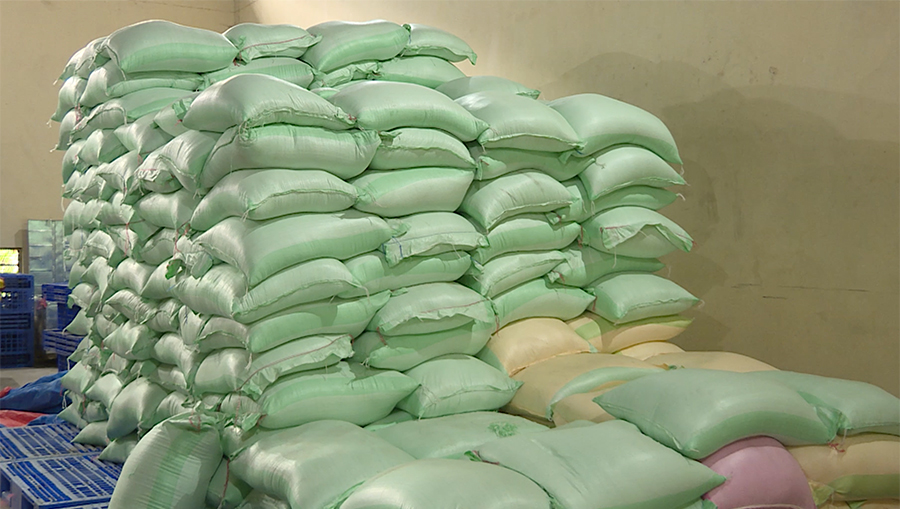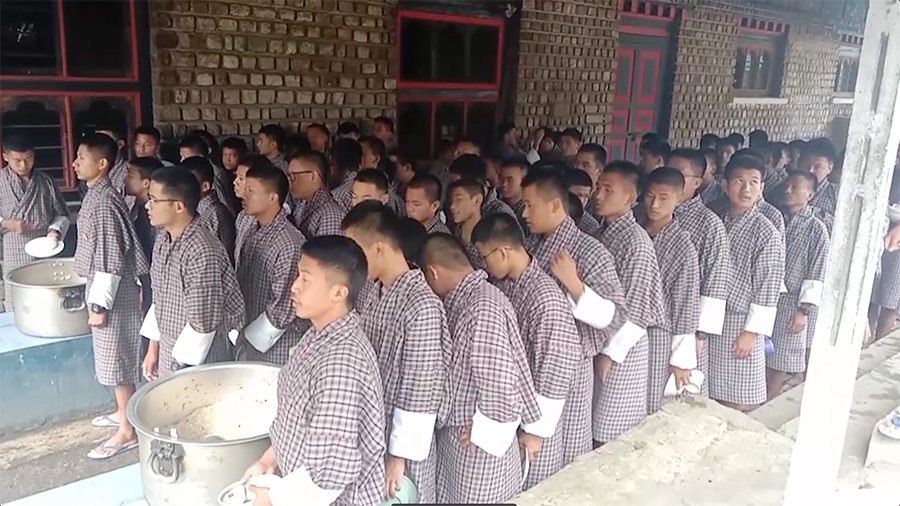
India’s ban on the export of non-basmati rice is likely to affect the National School Feeding Programme. According to the Food Corporation of Bhutan, there will be a shortage of rice supply in the schools in case the ban continues for a few more months. The Education and Skills Development ministry distributes fortified rice to close to 500 schools under the National School Feeding programme, providing meals to 98,000 students in the country as of now.
 Nangkor Central School in Pema Gatshel is one of the schools under the National School Feeding Programme where students are fed fortified rice.
Nangkor Central School in Pema Gatshel is one of the schools under the National School Feeding Programme where students are fed fortified rice.
The fortified rice is made from raw rice of 551 brands. After importing, the raw rice is mixed with Kernels for fortification.
Fortified rice is said to contain vitamins, zinc, and iron to supplement the micronutrients.
According to the Chief Executive Officer of the FCB, they were to initially import 1650 Metric tonnes of raw rice for the feeding schools for three months which is from July to September.
However, the corporation could import only more than half of the requirement due to the export ban.
The CEO added that they are managing the supply from the general reserve for now.
He added that if a shortage of raw rice arises in the country due to the ban, they will have to consider other measures.
“If the export restriction continues further there will definitely be a shortage of raw rice not just in schools but also in the general market. Since the export restrictions were imposed on non-basmati rice, supply of regular rice to schools will not happen,” said Dorji Tashi, FCBL CEO.
He also said that the other alternative measures would be to buy more expensive rice such as Basmati rice to supplement the fortified rice in schools.
“Schools may have to resort to procuring basmati varieties which are more expensive than raw rice by a price difference of 20 Ngultrum per kilo. Thirdly this would have huge financial implications for the schools because I would like to believe that their budget was based on raw rice which is non-basmati rice that is less expensive,” said Dorji Tashi.
Meanwhile, the School Health and Nutrition Division said that they are hopeful that things will be resolved in the coming months.
“For now, our update is we are through the third quarter of this third academic year. And our third quarter is from July to September end. We are told that all the schools are supplied with rations for the third quarter. So, there shouldn’t be a problem. We have August so hopefully things will be sorted out,” said Karma Wangchuk, Chief Programme Officer of School Health and Nutrition Division.
He also added that the cost implications of shortage in supply will not compromise the supplementary nutrients supplied to the students in schools.
“We will have a conversation with FCBL and we might have to put up with higher authorities for further discussion on how to go about and even for that matter we might end up buying more expensive rice. Only the cost implication will be for buying little expensive rice.”
India banned the export of non-basmati white rice last month to ensure adequate availability and curb the hike in price in the domestic market.
The government has also written a letter to the Indian government with a special request to lift the ban on export for Bhutan.
Sonam Yuden
Edited by Phub Gyem










